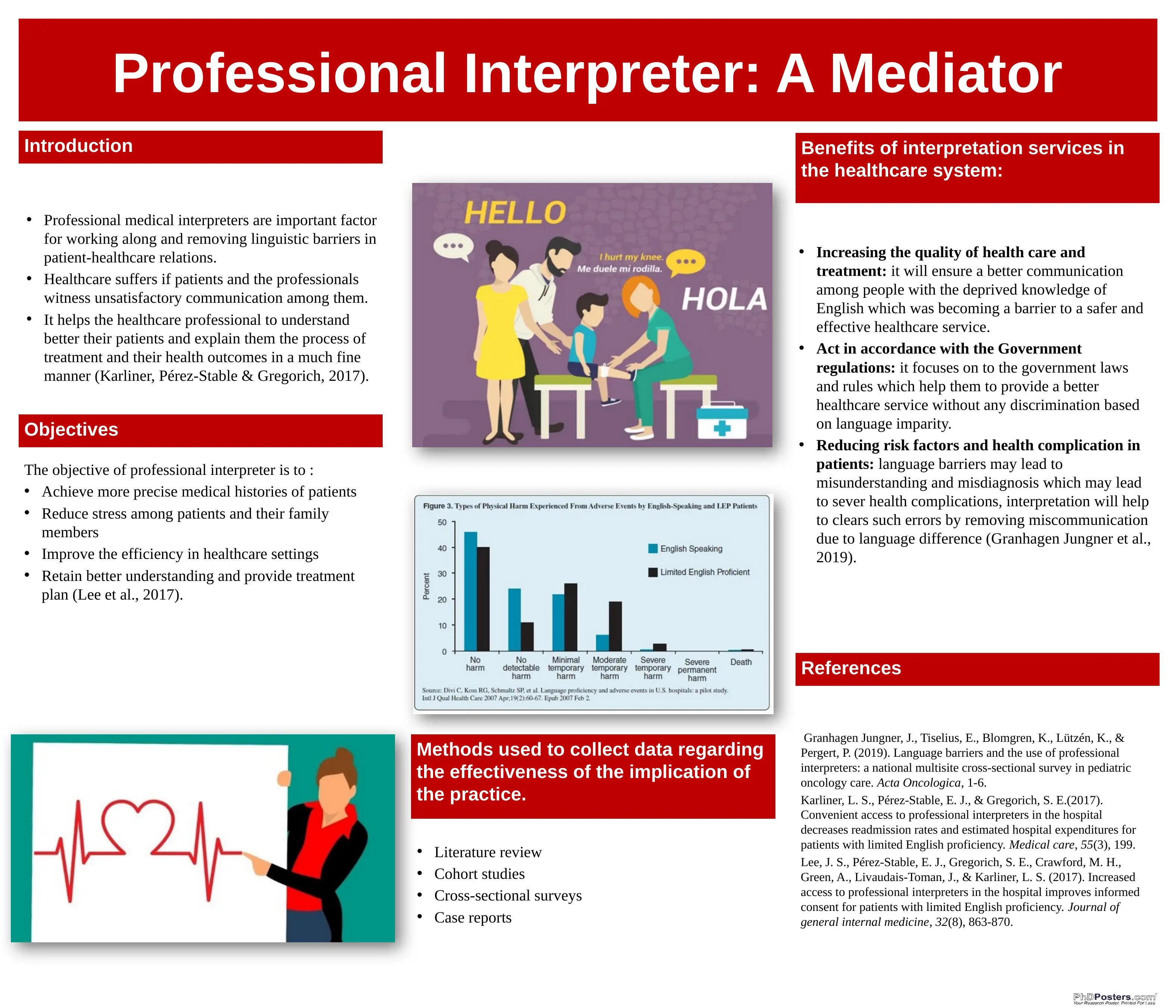EDUCATOR Assessment: CHCPOL003 Medical Interpretation Benefits Report
VerifiedAdded on 2023/01/20
|1
|450
|31
Report
AI Summary
This report, prepared for the CHCPOL003 unit, explores the benefits of professional medical interpretation services within the healthcare system. It highlights the importance of interpreters in removing linguistic barriers, improving patient-healthcare professional communication, and ensuring accurate understanding of treatment plans and health outcomes. The report emphasizes how interpretation enhances the quality of care, aligns with government regulations, and reduces risks associated with language barriers, such as misdiagnosis. Objectives discussed include achieving precise medical histories, reducing patient stress, and improving efficiency in healthcare settings. The report outlines the methods used to collect data, referencing literature reviews, cohort studies, cross-sectional surveys, and case reports, supporting the claims with relevant academic sources. The report is a valuable resource for understanding the impact of interpretation on patient care and healthcare outcomes.







![[object Object]](/_next/static/media/star-bottom.7253800d.svg)